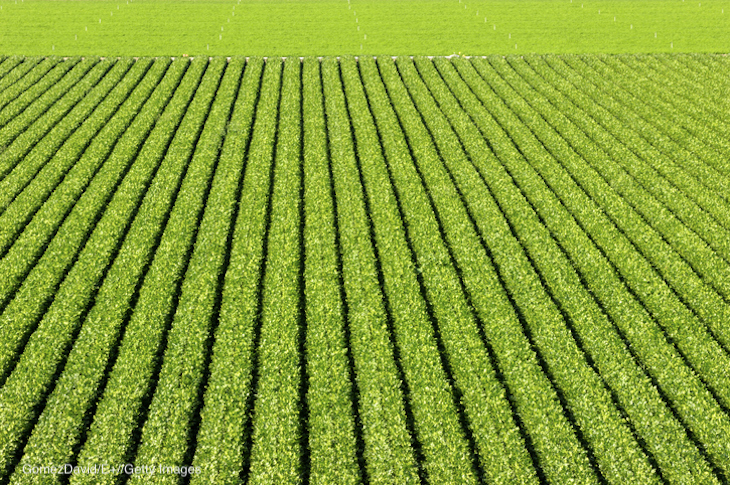The Center for Produce Safety is awarding grant money for a study to evaluate the risks of E. coli being carried in the wind on dust. For the issue of produce contamination is E. coli blowing in the wind?

E. coli bacteria can survive in dust; in fact, an NIH study conducted in 2016 found that the pathogen can live in dust samples for 20 years. Here’s how this works: Cattle carry pathogenic E. coli bacteria in their guts and excrete it in the feces. The feces contaminates soil in the area, which can then dry and become airborne in dust.
The problem is that if the pathogen is in dust from factory farms, it can travel on the wind to produce fields and contaminate vegetables, especially romaine lettuce. That lettuce’s unique physiology makes it easy for bacteria to collect in its center. That gives the pathogen time to actually enter the lettuce cells, so the contamination is not just on the surface and can’t be washed off.
The FDA has often named factory farms, or large cattle operations, as suspects in the many E. coli outbreaks linked to romaine lettuce over the years. The Yuma area in Arizona and the Salinas, California growing fields have been linked to several recent outbreaks. In just one outbreak in late 2019, at least 167 people were sickened with E. coli O157:H7 after eating romaine lettuce.
In a 2020 romaine E. coli outbreak that sickened 40 people, the outbreak strain was found in a cattle feces composite sample taken from the side of a road about 1.3 miles upslope from a produce farm with multiple fields. That farm was linked to the outbreak by FDA traceback investigations.
Dust is an understudied vehicle for bacterial disposal. The dust could be contaminated by natural soil, silage, manure-amended soils, sewage-based biosolids, composting, and animal production facilities, according to the grant. The study will look at the role of dust in transferring foodborne pathogens to the surfaces of produce, and will also study the role of humidity in dust deposits on produce. Scientists will test dust particulates from animal operations in Georgia and Arizona for biomarkers that indicate fecal contamination.
The study is being conduced at the University of Arizona by Dr. Kelly R. Bright, with investigators Walter Q. Betancourt, Ph.D., Charles P. Gerba, Ph.D., Govindaraj Dev Kumar, Ph.D., Laurel Dunn, Ph.D.




